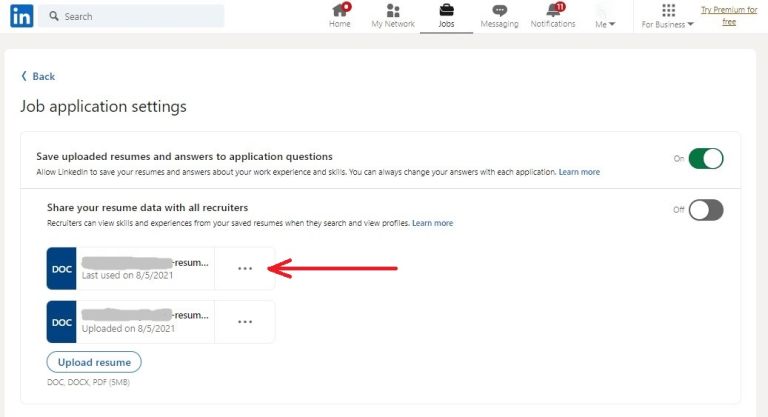Google’s March 2024 Core Update: Your Survival Guide to SEO Changes
Introduction

Welcome to your survival guide to navigate the changes brought about by Google’s March 2024 Core Update. As a website owner or SEO enthusiast, staying up to date with Google’s algorithm changes is crucial for maintaining and improving your website’s visibility in search results. This core update, like others before it, aims to improve the quality of search results and reduce spam.
Google’s algorithm updates play a vital role in determining how websites are ranked in search results. Understanding these updates can help you adapt your SEO strategy and stay ahead of your competition. With each update, Google refines its ranking factors to ensure that users are presented with the most relevant and useful information.
Preparing your website for the March 2024 Core Update involves optimizing both your content and technical aspects. By implementing SEO strategies that align with the update’s objectives, you can increase your chances of ranking higher in search results.
Once the update is rolled out, it is essential to monitor your website’s performance and rankings closely. Tracking these metrics and analyzing the data will enable you to make informed decisions regarding your SEO tactics. It may be necessary to adjust your strategy based on the performance observed post-update.
Adapting your SEO approach to align with Google’s latest algorithm changes is crucial for long-term success. Emphasizing user experience and creating high-quality content have always been important, and with this update, they become even more crucial.
In conclusion, with Google’s March 2024 Core Update, it is essential to stay informed and prepared. By understanding the changes, optimizing your website, monitoring performance, and adapting your SEO strategy, you can navigate these updates successfully and ensure your website’s visibility in search results.
An overview of Google’s March 2024 Core Update

Google’s March 2024 Core Update is the latest algorithm update released by Google. This update aims to enhance the quality of search results by introducing algorithmic enhancements and targeting low-quality and unoriginal content. The ultimate goal is to provide users with more useful and relevant information.
One of the key focuses of this core update is to surface useful information while diminishing the presence of unoriginal content in search results. Google aims to reduce the visibility of low-quality content by 40%, building on the efforts made in previous updates.
With the March 2024 Core Update, Google is refining its ranking factors to ensure that high-quality and original content is prioritized in search results. Websites that emphasize user experience by providing valuable, well-researched, and engaging content are more likely to see improvements in their rankings.
This update signifies Google’s commitment to delivering the best possible search experience for its users. By filtering out low-quality and unoriginal content, Google aims to provide users with reliable and trustworthy information from reputable sources. This means that website owners and SEO professionals need to align their strategies with Google’s objectives to maintain or improve their website’s visibility in search results.
It’s important to stay informed about algorithm updates like the March 2024 Core Update to understand how they may impact your website’s rankings. By following best practices for SEO and creating high-quality content, you can adapt your strategy to align with Google’s latest algorithm changes and ensure the long-term success of your website.
Key SEO changes and their impact

With the March 2024 Core Update, Google has introduced several key changes that will impact your SEO strategies. Understanding these changes and their impact is crucial for navigating the evolving search landscape.
- Emphasis on User Experience: Google’s algorithm now prioritizes websites that provide a seamless user experience. Factors such as site speed, mobile responsiveness, and easy navigation play a significant role in determining rankings. Ensuring that your website is easy to use and optimized for all devices will improve your chances of ranking higher.
- Quality Content is Key: The update reinforces Google’s commitment to high-quality content. Websites that offer valuable, well-researched, and original content will be favored in search rankings. Focus on producing in-depth, authoritative content that caters to user intent and addresses their needs. Incorporate keywords naturally and provide comprehensive answers to users’ queries.
- Importance of E-A-T: Expertise, Authoritativeness, and Trustworthiness (E-A-T) are crucial factors in Google’s assessment of websites. Establishing your expertise in your industry, building authoritative backlinks, and gaining the trust of users will positively impact your rankings. Provide accurate and reliable information, cite trustworthy sources, and showcase expertise through author bios and credentials.
- Penalizing Low-Quality and Unoriginal Content: The March 2024 Core Update aims to reduce the visibility of low-quality and unoriginal content. Websites that engage in content scraping, duplicate content, or thin and irrelevant content will experience a decrease in rankings. Focus on creating unique and valuable content that brings something new to the table.
- Continued Focus on Security: Google prioritizes the safety and security of users. Websites with secure HTTPS connections and robust security measures will be favored in search results. Implement SSL certificates, regularly update security plugins, and ensure a safe browsing experience for your visitors.
Adapting your SEO strategies to align with these changes will help your website maintain or improve its visibility in search results. Focus on user experience, provide high-quality content, establish E-A-T, and prioritize website security to stay ahead in the ever-evolving SEO landscape.
Understanding Google’s Algorithm Updates

To navigate the ever-changing search landscape, it is essential to understand Google’s algorithm updates and their impact on your website’s rankings. Google regularly updates its algorithm to improve the quality and relevance of search results. These updates aim to provide users with the most accurate and valuable information.
Google’s algorithm updates can have a significant impact on your website’s visibility and rankings. It is crucial to stay informed about these updates and adapt your SEO strategies accordingly. By understanding the changes in ranking factors, you can optimize your website to align with Google’s latest requirements.
One key aspect of algorithm updates is the changes in ranking factors. Google considers hundreds of factors when determining search rankings, and these factors may change with each update. For example, in the March 2024 Core Update, Google emphasized user experience, quality content, E-A-T (Expertise, Authoritativeness, Trustworthiness), and website security as important ranking factors. Understanding these changes helps you prioritize your efforts and make necessary optimizations.
Another important aspect is the impact on search results. Algorithm updates can significantly alter the search landscape by reshuffling rankings and favoring certain types of content. It’s crucial to analyze the impact on your website’s performance and adjust your SEO tactics accordingly. By monitoring your website’s rankings and traffic post-update, you can identify any changes and make data-driven decisions to maintain or improve your visibility.
In conclusion, understanding Google’s algorithm updates is crucial for SEO success. By staying informed about these updates, analyzing the changes in ranking factors, and monitoring your website’s performance, you can adapt your SEO strategies and stay ahead in the search landscape.
Insights into Google’s algorithm updates

Google’s algorithm updates are crucial for understanding the search landscape and optimizing your website’s visibility. These updates are designed to improve search result quality, ensuring users find the most relevant and valuable information. By gaining insights into Google’s algorithm updates, you can stay ahead in SEO and adapt your strategies accordingly.
One key insight is that Google’s algorithm is continuously evolving. It goes through hundreds of updates each year, with major core updates being released periodically. These updates can have a significant impact on search rankings, reshuffling the search results and favoring certain types of content.
Another insight is that Google focuses on improving user experience. User satisfaction is paramount, and Google aims to prioritize results that provide valuable and engaging content. This means that factors like page load speed, mobile-friendliness, and user engagement metrics play a crucial role in determining search rankings.
Google also places emphasis on content quality and relevance. High-quality, informative, and well-researched content tends to rank higher. It is important to create content that aligns with users’ search intent and provides valuable insights or solutions to their queries.
Furthermore, Google considers the E-A-T (Expertise, Authoritativeness, Trustworthiness) of websites when determining rankings. Websites that demonstrate expertise, have a strong reputation, and are trusted sources of information are more likely to rank well.
Keeping up with Google’s algorithm updates and understanding these insights is vital for SEO success. It allows you to make informed decisions and prioritize your efforts accordingly. By staying updated and aligning your website with Google’s requirements, you can maintain or improve your visibility in the search results.
Changes in ranking factors and search results

When it comes to Google’s algorithm updates, understanding the changes in ranking factors and search results is crucial for SEO success. With the March 2024 Core Update, Google has introduced several adjustments that can impact your website’s visibility in search results.
One key change is the focus on surfacing useful and original information. Google aims to reduce the presence of low-quality and unoriginal content in search results. This means that websites that offer unique and valuable insights are more likely to rank higher.
Another important factor is user experience. Google prioritizes websites that provide a seamless and engaging experience for users. Factors such as page load speed, mobile-friendliness, and user engagement metrics play a significant role in determining search rankings. Therefore, it is essential to optimize your website for these aspects to improve your chances of ranking higher.
Additionally, expertise, authoritativeness, and trustworthiness (E-A-T) continue to be important ranking factors. Google values websites that are recognized as reliable sources of information. Demonstrating expertise in your niche, building a strong reputation, and providing trustworthy content are essential for ranking well in search results.
Furthermore, Google’s algorithm updates can lead to changes in the appearance of search results. The update may introduce new features, such as rich snippets and knowledge panels, that provide users with more detailed information directly in the search results. Understanding how these changes impact the visibility of your website and adapting your strategies accordingly is crucial.
In summary, the March 2024 Core Update brings changes to ranking factors and search results. To optimize your website’s visibility, focus on providing valuable and original content, improving user experience, and building expertise, authoritativeness, and trustworthiness. Monitor the impact of these changes and adjust your SEO strategy accordingly to maintain or improve your search rankings.
Preparing Your Website for the Update

To ensure your website is ready for the Google March 2024 Core Update, it’s important to take proactive steps. By optimizing your website, you can improve its visibility and maintain or even improve your search rankings. Here are some strategies to prepare your website for the update:
- Audit your content : Review your existing content and identify any low-quality or duplicated content. Remove or rewrite it to provide unique and valuable information to your users. Ensure that your content meets Google’s E-A-T (Expertise, Authoritativeness, and Trustworthiness) guidelines.
- Optimize user experience : User experience is a crucial factor in search rankings. Improve page loading speed by optimizing images and reducing unnecessary scripts. Ensure your website is mobile-friendly and responsive to provide a seamless experience across different devices.
- Focus on relevant keywords : Conduct keyword research to identify the most relevant and high-ranking keywords for your industry. Use these keywords strategically in your content, page titles, meta descriptions, and headers to improve the visibility of your website in search results.
- Improve site structure : Ensure your website has a logical and organized structure. Use clear and concise headings, subheadings, and navigation menus to make it easier for users and search engines to understand your content.
- Build high-quality backlinks : Earn authoritative and relevant backlinks from reputable websites in your industry. This can boost your website’s credibility and improve its search rankings.
- Monitor and analyze performance : Regularly track your website’s performance, including traffic, rankings, and user engagement metrics. Use analytics tools to identify areas for improvement and make necessary adjustments to your SEO strategy.
By focusing on these strategies, you can prepare your website for the Google March 2024 Core Update. Remember to stay up-to-date with future algorithm changes and continue implementing best SEO practices to ensure the long-term success of your website.
SEO strategies to prepare for Google’s March 2024 Core Update

To ensure that your website is ready for Google’s March 2024 Core Update, it’s important to implement effective SEO strategies. By doing so, you can improve your website’s visibility, maintain or even improve your search rankings, and provide a better user experience. Here are some strategies to help you prepare:
- Conduct a thorough content audit: Review all your website’s content and identify any low-quality or duplicated content. Remove or rewrite such content to provide unique and valuable information to your users. Ensure that your content meets Google’s E-A-T (Expertise, Authoritativeness, and Trustworthiness) guidelines.
- Optimize user experience: User experience is a critical factor in search rankings. Improve the loading speed of your web pages by optimizing images and reducing unnecessary scripts. Make sure your website is mobile-friendly and responsive to provide a seamless experience across different devices.
- Focus on relevant keywords: Conduct keyword research to identify the most relevant and high-ranking keywords for your industry. Incorporate these keywords strategically in your content, page titles, meta descriptions, and headers to improve the visibility of your website in search results.
- Improve site structure: Ensure that your website has a logical and organized structure. Use clear and concise headings, subheadings, and navigation menus to make it easier for users and search engines to understand your content.
- Build high-quality backlinks: Earn authoritative and relevant backlinks from reputable websites in your industry. This can boost your website’s credibility and improve its search rankings.
- Monitor and analyze performance: Regularly track your website’s performance, including traffic, rankings, and user engagement metrics. Use analytics tools to identify areas for improvement and make necessary adjustments to your SEO strategy.
By implementing these SEO strategies, you can prepare your website for Google’s March 2024 Core Update and ensure its long-term success. Remember to stay updated with future algorithm changes and continue to adapt your SEO practices accordingly.
Optimizing content and technical aspects

When preparing your website for Google’s March 2024 Core Update, optimizing your content and technical aspects is crucial to improve your search rankings and provide a better user experience. Here are some key strategies to implement:
- Enhance your content: Review your website’s content and ensure it is high-quality, relevant, and valuable to users. Conduct keyword research to identify relevant keywords and incorporate them strategically throughout your content. Use headings, subheadings, and bullet points to make your content organized and easy to read. Consider adding multimedia elements such as images and videos to enhance engagement.
- Improve page loading speed: Page loading speed is an important factor in user experience and search rankings. Optimize your website’s images by compressing them without compromising quality. Minimize the use of unnecessary scripts and plugins that can slow down your site. Utilize browser caching and content delivery networks (CDN) to improve loading times.
- Ensure mobile-friendliness: With the increasing use of mobile devices for internet browsing, having a mobile-friendly website is crucial. Optimize your website for mobile by using responsive design to ensure it adapts seamlessly to different screen sizes. Test your website on various mobile devices to ensure a smooth user experience.
- Optimize meta tags and descriptions: Meta tags and descriptions provide search engines with information about your web pages. Optimize them by including relevant keywords and compelling descriptions that entice users to click on your website in search results.
- Fix broken links and improve navigation: Broken links can negatively impact user experience and search rankings. Regularly check your website for broken links and fix them promptly. Improve navigation by organizing your content with clear and concise menus. Make it easy for users to navigate between different pages on your website.
By optimizing your content and technical aspects, you can enhance your website’s visibility, improve user experience, and maximize the benefits of Google’s March 2024 Core Update. Remember to monitor your website’s performance and make adjustments as needed to maintain your search rankings.
Monitoring Performance Post-Update

After implementing the necessary SEO strategies and optimizing your website for Google’s March 2024 Core Update, it’s crucial to monitor your website’s performance and rankings post-update. This will help you assess the impact of the changes and make necessary adjustments to maintain or improve your search rankings. Here are some key steps to monitor your website’s performance post-update:
- Track website analytics: Keep a close eye on your website analytics to monitor changes in organic traffic, user engagement, bounce rates, and conversion rates. Analyze the data to identify any significant fluctuations and understand how the update may have affected your website’s performance.
- Check search rankings: Regularly monitor your website’s search rankings for relevant keywords. Use tools like Google Search Console, SEMrush, or Moz to track your rankings and see if there have been any notable changes. Analyzing ranking fluctuations will give you insights into how the update has impacted your visibility in search results.
- Analyze user behavior: Dive into user behavior data to understand how visitors are interacting with your website post-update. Look for changes in page dwell time, click-through rates, and conversion rates. Identify any trends or patterns that indicate a positive or negative impact on user engagement.
- Evaluate user feedback: Pay attention to user feedback, comments, and reviews, as they can provide valuable insights into user satisfaction and any issues that may have arisen post-update. Monitor social media platforms, discussion forums, and review websites to gather feedback and address any concerns promptly.
Based on the findings from monitoring your website’s performance, you can make data-driven decisions and adjust your SEO tactics accordingly. This may involve fine-tuning your content strategy, optimizing technical aspects, or improving user experience. Remember that SEO is an ongoing process, and monitoring performance post-update will help you stay ahead of the game and maintain your search rankings.
Tracking website performance and rankings after the update

One of the crucial steps in navigating Google’s March 2024 Core Update is tracking your website’s performance and rankings after the update. By monitoring these metrics, you can assess the impact of the algorithm changes and make necessary adjustments to maintain or improve your search rankings.
To effectively track website performance, start by closely analyzing your website analytics. Keep an eye on changes in organic traffic, user engagement metrics such as bounce rates and conversion rates, and overall website visibility. Look for any significant fluctuations that coincide with the update period.
Additionally, it’s important to regularly check your search rankings for relevant keywords. Tools like Google Search Console, SEMrush, or Moz can help you track your rankings and identify any notable changes. Pay attention to any fluctuations in your rankings and consider the potential underlying reasons.
Furthermore, it’s essential to analyze user behavior data. Look for changes in page dwell time, click-through rates, and conversion rates to understand how visitors are interacting with your website post-update. Identify any trends or patterns that indicate a positive or negative impact on user engagement.
Don’t forget to evaluate user feedback, comments, and reviews. Monitor social media platforms, discussion forums, and review websites to gather insights into user satisfaction and any issues that may have arisen post-update.
Based on the findings from monitoring your website’s performance, make data-driven decisions and adjust your SEO tactics accordingly. This may involve fine-tuning your content strategy, optimizing technical aspects, or improving user experience. Keep in mind that SEO is an ongoing process, and tracking performance post-update will help you stay ahead of the game and maintain your search rankings.
Adjusting SEO tactics based on data analysis

Once you have tracked and analyzed your website’s performance and rankings post-update, it’s time to make data-driven decisions and adjust your SEO tactics accordingly. By leveraging the insights gained from data analysis, you can optimize your website to align with Google’s latest algorithm changes and improve your search rankings. Here’s how you can adjust your SEO tactics based on data analysis:
- Fine-tune your content strategy: Evaluate the performance of your web pages and identify any patterns or trends in terms of organic traffic and user engagement metrics. Use this information to refine your content strategy by focusing on creating high-quality, relevant, and unique content that meets the needs of your target audience.
- Optimize technical aspects: Assess the technical performance of your website by analyzing metrics like page load speed and mobile responsiveness. If you notice any issues or areas for improvement, address them to ensure a smooth user experience and better search visibility.
- Improve user experience: Dive deeper into user behavior data and identify any pain points or areas of improvement on your website. Enhance the user experience by optimizing navigation, improving website accessibility, and implementing responsive design. Additionally, consider integrating user feedback or conducting user surveys to gain valuable insights.
- Build authoritative and trustworthy backlinks: Analyze your website’s backlink profile and identify any opportunities to acquire high-quality backlinks from authoritative and relevant sources. Focus on building a diverse and natural backlink profile to boost your website’s credibility and authority in the eyes of search engines.
- Stay up-to-date with SEO best practices: Keep a close eye on industry trends and stay informed about the latest SEO techniques and strategies. Continually educate yourself and adapt your SEO tactics to align with Google’s evolving algorithm updates.
Remember, adjusting your SEO tactics based on data analysis is an ongoing process. Continuously monitor and evaluate your website’s performance, stay updated with the latest SEO trends, and make data-driven adjustments to ensure long-term success in the ever-changing landscape of search engine optimization.
Adapting Your SEO Strategy

To navigate Google’s March 2024 Core Update successfully, it’s crucial to adapt your SEO strategy. As an SEO analyst, here are some key considerations to help you adjust and thrive in the ever-changing landscape of search engine optimization:
- Refine SEO tactics: Analyze the impact of the core update on your website’s performance and rankings. Identify any areas where your website may have been negatively affected and adjust your SEO tactics accordingly. This could involve optimizing your keyword targeting, improving on-page SEO elements, and refining your link building strategy.
- Emphasize user experience: Google’s algorithm updates increasingly prioritize websites that provide a great user experience. Focus on improving website navigation, ensuring fast page load speeds, and creating mobile-friendly designs. By enhancing user experience, you promote higher levels of engagement and satisfy Google’s criteria for ranking well.
- Create high-quality, relevant content: With the March 2024 update, Google is actively working to reduce unhelpful or unoriginal content by 40%. To meet these new expectations, focus on creating valuable, unique, and authoritative content. Conduct keyword research to identify topics relevant to your target audience and develop well-structured articles that genuinely address their needs.
- Build a diverse backlink profile: Backlinks from high-quality and relevant sources continue to play a vital role in SEO. Evaluate your backlink profile and identify opportunities to acquire diverse and authoritative links. This could involve reaching out to industry influencers, participating in guest blogging, or leveraging social media platforms to gain exposure and generate quality backlinks.
- Stay updated with industry trends: SEO is a dynamic field, and staying informed about the latest strategies and techniques is essential. Continually educate yourself through industry blogs, webinars, and conferences to stay ahead of Google’s algorithm updates and make informed adjustments to your SEO strategy.
By adapting your SEO strategy based on these considerations, you can position your website for long-term success, maintain high search rankings, and effectively navigate Google’s March 2024 Core Update. Remember, the key is to continuously monitor and analyze your website’s performance, stay updated with industry trends, and make data-driven adjustments when necessary.
Refining SEO tactics to align with Google’s latest algorithm changes

To ensure your website continues to rank well in the wake of Google’s March 2024 Core Update, it’s crucial to refine your SEO tactics and align them with the latest algorithm changes. Here are some key strategies to consider:
- Review your keyword targeting: Analyze your current keyword strategy and make adjustments based on the latest algorithm changes. Use tools like Google Keyword Planner or SEMrush to identify high-quality, relevant keywords that align with user intent. Focus on long-tail keywords and natural language queries to cater to voice search and semantic search algorithms.
- Optimize your on-page SEO elements: Pay close attention to your title tags, meta descriptions, and header tags. Make sure they accurately represent the content of your pages and include relevant keywords. Optimize your URLs to be descriptive and user-friendly. Aim for concise, compelling, and click-worthy snippets that encourage users to click through to your website.
- Improve website speed and mobile experience: Google places a high emphasis on user experience, particularly mobile experience and page load speed. Optimize your website for mobile devices by implementing responsive design and AMP (Accelerated Mobile Pages) technology. Compress images and minimize code to improve page load times.
- Enhance site navigation and architecture: Ensure that your website is easy to navigate with a clear hierarchy and logical structure. Use internal linking to guide users to relevant content and improve the crawlability of your site. Implement breadcrumbs and a user-friendly navigation menu to help visitors find what they’re looking for.
- Foster user engagement: User engagement signals, such as time on page, bounce rate, and click-through rates, are critical for demonstrating the quality of your website. Create compelling, informative, and unique content that encourages users to stay on your site and engage with your pages. Incorporate multimedia elements like videos, infographics, and interactive features to enhance user experience.
By refining your SEO tactics and adapting to Google’s latest algorithm changes, you can position your website for continued success in the search rankings. Remember to regularly monitor your site’s performance, stay updated on industry trends, and make data-driven adjustments as needed.
Emphasizing user experience and quality content

When it comes to adapting your SEO strategy to align with Google’s latest algorithm changes, one of the key aspects to focus on is user experience and quality content. Google’s March 2024 Core Update places a significant emphasis on these factors, as they play a crucial role in determining the overall ranking and visibility of your website.
To enhance user experience, make sure your website is easy to navigate with a clear hierarchy and logical structure. A well-designed navigation menu, along with breadcrumbs, can help visitors find what they’re looking for quickly and easily. Additionally, incorporate internal linking to guide users to relevant content and improve the crawlability of your site.
Another important aspect of user experience is the speed and mobile responsiveness of your website. Optimize your website for mobile devices by implementing responsive design and AMP (Accelerated Mobile Pages) technology. Compress images and minimize code to improve page load times, as slow-loading pages can frustrate users and lead to higher bounce rates.
In terms of content, focus on providing high-quality, informative, and unique content that satisfies the user’s search intent. Avoid duplicate or thin content that offers little value. Instead, strive to create comprehensive and valuable content that answers the user’s questions and solves their problems. Incorporate multimedia elements like videos, infographics, and interactive features to enhance user engagement.
Remember, quality content not only attracts and retains users but also helps build credibility and authority in your niche. By prioritizing user experience and producing valuable content, you can improve your website’s visibility and rankings in the search results.
Keep in mind that SEO is an ongoing process, and it’s essential to stay updated with the latest trends and best practices. Regularly monitor your website’s performance, analyze user behavior data, and make data-driven adjustments to your SEO strategy to ensure long-term success in the ever-evolving landscape of search engine optimization.
Conclusion

In conclusion, navigating Google’s March 2024 Core Update requires a proactive approach to adapt and optimize your SEO strategy. By understanding the key changes and implementing the necessary measures, you can ensure your website’s visibility and rankings in the search results.
First and foremost, it’s crucial to stay updated with Google’s algorithm updates and the latest trends in SEO. Regularly monitor your website’s performance, analyze user behavior data, and make data-driven adjustments to your SEO tactics. This will help you stay ahead of the curve and maintain a competitive edge in the search landscape.
Emphasizing user experience and quality content is paramount. Focus on creating a website that is easy to navigate, responsive on mobile devices, and offers valuable content that satisfies the user’s search intent. Incorporate multimedia elements to enhance engagement and build credibility in your niche.
Additionally, keep an eye on your website’s performance and rankings after the update. Monitor changes in organic traffic, keyword rankings, and user engagement metrics to gauge the effectiveness of your SEO efforts. Make necessary adjustments to your strategy based on the data analysis to further optimize your website’s visibility and performance.
Remember, SEO is an ongoing process, and it’s essential to continuously adapt and refine your approach. By prioritizing user experience, providing valuable content, and staying up-to-date with the latest SEO practices, you can navigate Google’s algorithm updates and ensure long-term success in organic search rankings.
Key takeaways for navigating Google’s March 2024 Core Update

When it comes to navigating Google’s March 2024 Core Update, there are a few key takeaways that can help ensure your website’s success in the ever-evolving world of SEO.
First and foremost, it’s crucial to stay updated with Google’s algorithm updates and the latest trends in SEO. By staying informed, you can better understand the changes and updates that Google has made, allowing you to make the necessary adjustments to your SEO strategy.
One important takeaway is the need to prioritize user experience. With this update, Google is emphasizing the importance of providing a seamless and intuitive experience for users. This includes having a website that is easy to navigate, loads quickly, and is optimized for mobile devices. By focusing on user experience, you can improve engagement and ensure that visitors have a positive interaction with your site.
Another key takeaway is the significance of quality content. Google is placing more emphasis on original and valuable content that meets the needs of users. This means creating content that is informative, relevant, and well-written. By consistently producing high-quality content, you can increase your chances of ranking higher in search results and attracting more organic traffic.
Lastly, it’s important to regularly monitor and analyze your website’s performance after the update. Keep an eye on changes in organic traffic, keyword rankings, and user engagement metrics. By tracking these metrics, you can identify any areas that may need improvement and make data-driven adjustments to your SEO strategy.
In conclusion, the key takeaways for navigating Google’s March 2024 Core Update revolve around staying informed, prioritizing user experience, focusing on quality content, and continuously monitoring and adjusting your SEO strategy. By following these guidelines, you can successfully navigate the ever-changing landscape of SEO and maintain a competitive edge in organic search rankings.
Adapting your SEO approach for long-term success

To ensure long-term success in the ever-evolving world of SEO, it is crucial to adapt your approach to align with Google’s latest algorithm changes. Here are some key strategies to consider:
- Emphasize user experience: User experience has become a top priority for Google. Ensure that your website is easy to navigate, mobile-friendly, and has fast loading times. Optimize your site structure and design to provide a seamless and intuitive browsing experience for visitors.
- Focus on quality content: With the March 2024 Core Update, Google is placing even more emphasis on original, valuable, and relevant content. Create high-quality content that meets the needs of your target audience and provides genuine value. Conduct keyword research to identify the topics and trends that are relevant to your industry and incorporate them into your content strategy.
- Develop a comprehensive link-building strategy: High-quality and authoritative backlinks continue to be an important ranking factor. Invest in building relationships with reputable websites and organizations in your industry to earn natural, organic backlinks. Guest blogging, influencer outreach, and content partnerships can help you acquire valuable backlinks and boost your website’s authority.
- Stay updated with SEO best practices: SEO is a dynamic field, and it’s crucial to stay updated with the latest trends, algorithm changes, and best practices. Regularly attend industry webinars, read reputable SEO blogs and publications, and participate in forums and discussions to stay informed about the latest developments in SEO.
By adapting your SEO approach to prioritize user experience, quality content, link-building, and staying updated with the latest trends, you can position your website for long-term success in the ever-changing landscape of SEO. Continuously monitor your website’s performance, track key metrics, and make data-driven adjustments to ensure that you remain competitive in organic search rankings.




